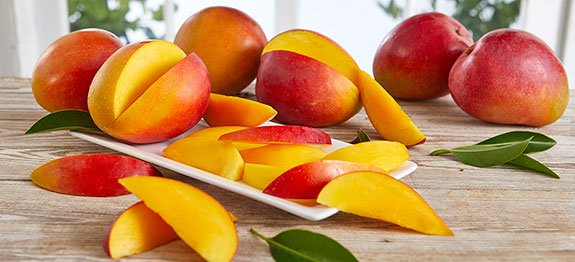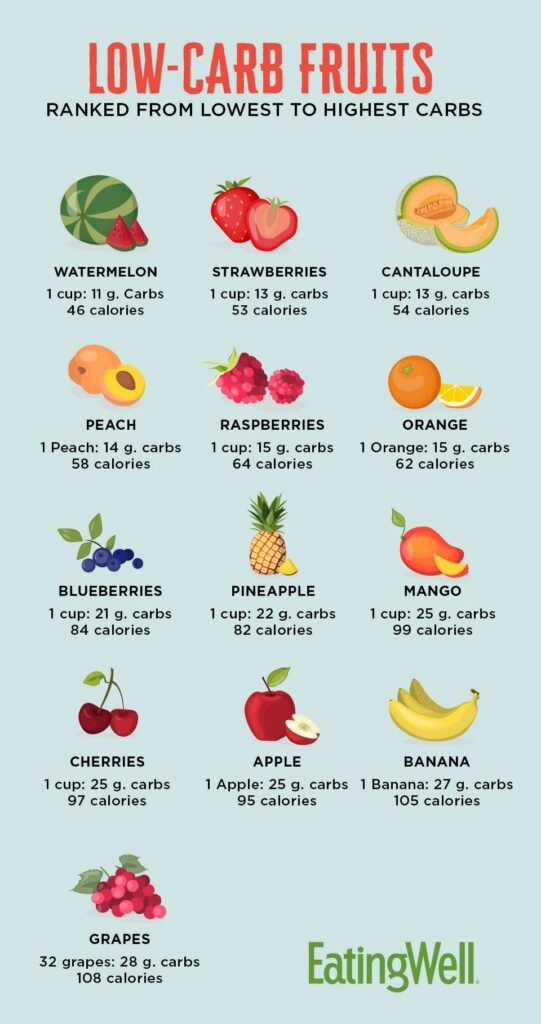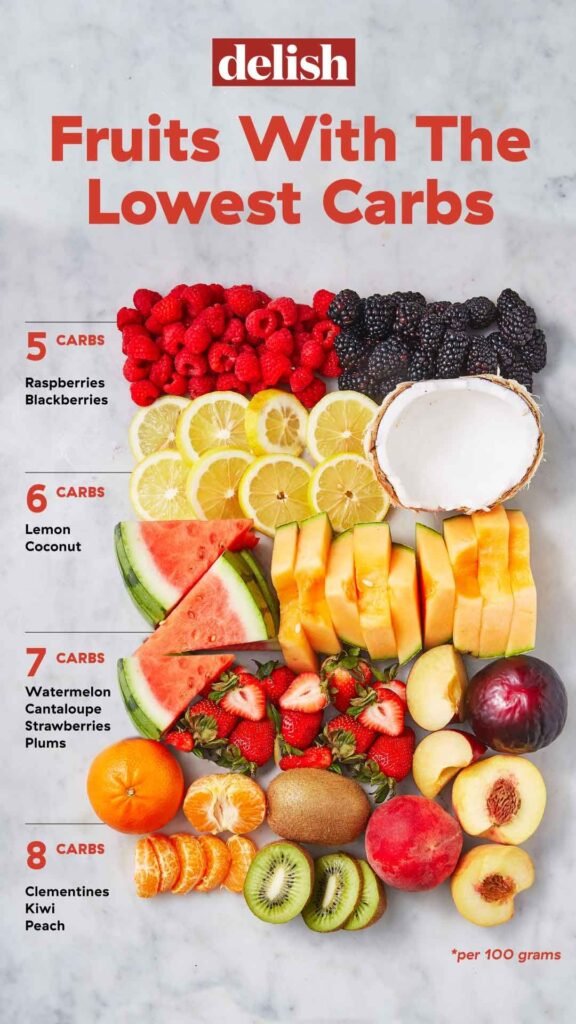Did you know that watermelon is not only delicious, but also a surprisingly low-carb fruit? Yes, you heard it right! Despite its sweet and juicy taste, watermelon is an excellent choice for those who are watching their carbohydrate intake. Packed with essential vitamins, minerals, and antioxidants, this refreshing fruit can be a guilt-free indulgence for any health-conscious individual. So, if you’re looking for a tasty treat that won’t derail your low-carb diet, reach for a slice of watermelon and satisfy your cravings while keeping your carb count in check.

Nutritional Profile of Watermelon
Watermelon is not only a delicious and refreshing fruit, but it also has a surprisingly low carbohydrate content. This makes it a great choice for those following a low-carb diet or looking to manage their weight and blood sugar levels. Let’s take a closer look at the various nutrients found in watermelon.
Calories
First and foremost, watermelon is a low-calorie fruit. With just 30 calories per 100 grams, it is an excellent option for those who are watching their calorie intake. This means that you can enjoy a generous portion of watermelon without worrying about excessive calorie consumption.
Carbohydrates
When it comes to carbohydrates, watermelon is relatively low compared to other fruits. On average, it contains about 7.6 grams of carbohydrates per 100 grams. This makes it a suitable choice for individuals following a low-carb diet or trying to limit their carbohydrate intake.
Protein
While watermelon is not a significant source of protein, it still contains a small amount. About 0.6 grams of protein can be found in 100 grams of watermelon. While this may not seem like much, every little bit adds up, especially for those who are looking to increase their protein intake.
Fat
Watermelon is virtually fat-free, making it a guilt-free treat for those who are conscious of their fat consumption. It contains negligible amounts of fat, which is great news for individuals trying to maintain a low-fat diet.
Fiber
Fiber is an essential nutrient that aids in digestion and promotes overall gut health. Watermelon, although not exceptionally high in fiber, still provides about 0.4 grams of fiber per 100 grams. While this may not be a significant source of fiber, it can contribute to your overall daily intake.
Vitamins and Minerals
Watermelon is packed with various vitamins and minerals, making it a nutritious choice. It is a rich source of vitamin C, providing about 8.1 milligrams per 100 grams. Additionally, it contains vitamins A and B6, as well as minerals like potassium and magnesium.
Carbohydrate Content in Watermelon
Total Carbohydrates
Watermelon contains approximately 7.6 grams of carbohydrates per 100 grams. While this may be higher than some other low-carb fruits, it is still relatively low in comparison to many high-carb foods. This makes watermelon a suitable choice for those who want to moderate their carbohydrate intake.
Sugar Content
A significant portion of the carbohydrates in watermelon comes from naturally occurring sugars. However, the sugar content in watermelon is relatively low. On average, it contains about 6 grams of sugar per 100 grams. This is relatively low compared to other fruits, making watermelon a suitable choice for those who are mindful of their sugar consumption.
Sugar vs. Fiber
While watermelon does contain sugar, it also provides a small amount of fiber. Fiber helps slow down the absorption of sugars in the body, preventing rapid spikes in blood sugar levels. This natural combination of sugar and fiber in watermelon can be beneficial for individuals looking to regulate their blood sugar levels.
Glycemic Index
The glycemic index (GI) is a measure of how quickly foods raise blood sugar levels. Watermelon has a relatively low glycemic index, making it a favorable choice for individuals concerned about blood sugar control. The GI of watermelon falls within the low range, indicating that it has a minimal impact on blood sugar levels.
Benefits of Low Carbohydrate Content
Weight Management
One of the significant benefits of consuming foods low in carbohydrates is their potential impact on weight management. Watermelon, being low in calories and carbohydrates, can be a satisfying snack or addition to meals without adding excessive calories or carbohydrates. This can help promote weight loss or maintenance, making watermelon a great choice for those looking to shed a few pounds.
Blood Sugar Control
When managing blood sugar levels, it is crucial to be mindful of carbohydrate intake. Watermelon’s low carbohydrate content and relatively low sugar levels make it a suitable fruit option for individuals with diabetes or those aiming to stabilize their blood sugar. Including watermelon in a balanced meal plan can help prevent spikes in blood sugar levels.
Digestive Health
Fiber plays a crucial role in maintaining a healthy digestive system. Although watermelon is not exceptionally high in fiber, it can contribute to your daily intake. The presence of fiber can promote regular bowel movements and aid in preventing constipation. Additionally, the high water content of watermelon helps hydrate the body, supporting overall digestive health.
Heart Health
A diet low in carbohydrates and fats is often associated with improved heart health. Watermelon, being a low-fat and low-carb fruit, can be incorporated into a heart-healthy diet. It is also a source of potassium, which is essential for maintaining healthy blood pressure levels. Including watermelon in your diet may contribute to better heart health.
Hydration
Watermelon gets its name for a reason – it is incredibly hydrating! With a water content of approximately 92%, watermelon can be a refreshing way to keep hydrated, especially during hot summer months or after physical activity. Staying hydrated is crucial for overall health and supports various bodily functions, making watermelon a great choice for quenching your thirst.
Other Nutritional Benefits
Vitamins
Watermelon is a rich source of various vitamins. It is particularly high in vitamin C, providing a good amount of this essential nutrient. Vitamin C is known for its role in supporting a healthy immune system, promoting collagen synthesis, and acting as an antioxidant in the body. Watermelon also contains vitamins A and B6, which are important for vision, skin health, and brain function, among other benefits.
Minerals
In addition to vitamins, watermelon is packed with essential minerals. Potassium, in particular, is present in significant amounts in watermelon. Potassium plays a crucial role in maintaining healthy blood pressure levels and supporting proper muscle and nerve function. Other minerals found in watermelon include magnesium, which is important for bone health, and copper, which is involved in various enzymatic reactions in the body.
Antioxidants
Watermelon contains several antioxidants that can help protect the body against oxidative stress and damage caused by free radicals. Lycopene, a powerful antioxidant present in watermelon, has been associated with various health benefits, including potential cancer prevention and heart health promotion. Consuming watermelon can be a delicious way to boost your antioxidant intake.
Watermelon and a Low-Carb Diet
Ketogenic Diet
The ketogenic diet, or keto diet, is a low-carb, high-fat diet that aims to shift the body into a state of ketosis. While watermelon may not be an ideal choice for individuals strictly following a ketogenic diet due to its carbohydrate content, it can still be enjoyed in moderation. Incorporating small portions of watermelon into a well-planned keto meal plan can add variety and provide essential nutrients while still keeping carbohydrate intake in check.
Low-Carb Meal Plans
For individuals following a general low-carb diet, watermelon can be a refreshing addition to meal plans. Its relatively low carbohydrate content allows for moderate consumption while still adhering to a low-carb approach. Including watermelon in low-carb meal plans can contribute to a well-balanced diet and add natural sweetness without excess carbohydrates or calories.
Watermelon as a Snack
Watermelon makes an excellent snack choice for those on a low-carb diet. Its high water content helps promote satiety and hydration, while its natural sweetness satisfies cravings. Enjoying a serving of watermelon as a snack can help curb hunger and provide a guilt-free treat that aligns with low-carb goals.
Tips for Including Watermelon in a Low-Carb Diet
Portion Control
While watermelon can be enjoyed on a low-carb diet, portion control is key. While its carbohydrate content is relatively low compared to some fruits, consuming large quantities can still contribute to higher carb intake. Be mindful of portion sizes and consider incorporating watermelon as part of a well-balanced meal or snack.
Pairing with Protein or Healthy Fats
To further support satiety and balance blood sugar levels, consider pairing watermelon with a source of protein or healthy fats. This combination can help slow down the absorption of carbohydrates, preventing rapid spikes in blood sugar levels. For example, enjoy watermelon alongside Greek yogurt or a handful of nuts for a satisfying and well-rounded snack.
Combining with Low-Carb Foods
When planning meals or snacks, consider combining watermelon with other low-carb foods. Vegetables, lean proteins, and healthy fats can be incorporated to create a balanced and nutritious meal. This allows you to enjoy the natural sweetness of watermelon while still adhering to a low-carb approach.
Risks and Considerations
Individual Variations
While watermelon is generally considered a low-carb fruit, individual carbohydrate tolerance can vary. Some people may be more sensitive to carbohydrates and may need to be more cautious with their intake, even when it comes to low-carb fruits like watermelon. It is important to listen to your body and adjust your consumption accordingly.
Health Conditions
Individuals with certain health conditions, such as diabetes or kidney issues, may need to be more cautious with their watermelon intake due to its natural sugar content and potassium levels. It is always best to consult with a healthcare professional or registered dietitian to determine the specific dietary needs and recommendations based on individual health conditions.
Moderation
While watermelon can be a healthy addition to a low-carb diet, moderation is key. While it is low in carbohydrates, excessive consumption can contribute to higher overall carbohydrate intake. It is essential to balance watermelon intake with other nutrient-dense foods and consider portion sizes to ensure a well-rounded and balanced diet.
Conclusion
Watermelon, with its low carbohydrate content and numerous nutritional benefits, can be a valuable addition to a low-carb diet. Its refreshing taste, high water content, and various vitamins and minerals make it an excellent choice for weight management, blood sugar control, digestive health, heart health, and hydration. By practicing portion control, pairing with protein or healthy fats, and incorporating it into a well-balanced meal plan, you can enjoy the benefits of watermelon without compromising your low-carb goals. Remember, a balanced approach to nutrition is always key, and watermelon can be a delicious and nutritious option within your overall diet.




